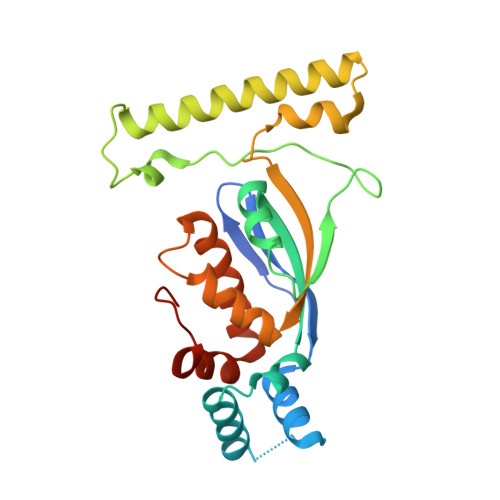Flavin-Dependent Thymidylate Synthase as a Drug Target for Deadly Microbes: Mutational Study and a Strategy for Inhibitor Design.
Mathews, I.I.(2013) J Bioterror Biodef Suppl 12: 004-004
- PubMed: 24563811
- DOI: https://doi.org/10.4172/2157-2526.S12-004
- Primary Citation of Related Structures:
4KAR, 4KAS, 4KAT - PubMed Abstract:
The identification of flavin-dependent thymidylate synthase (FDTS) as an essential enzyme and its occurrence in several pathogenic microbes opens opportunities for using FDTS enzyme as an excellent target for new antimicrobial drug discovery. In contrast to the human thymidylate synthase enzyme that utilizes methylene-tetrahydrofolate (CH 2 H 4 folate) for the conversion of dUMP to dTMP, the microbial enzymes utilize an additional non-covalently bound FAD molecule for the hydride transfer from NAD(P)H. The structural and mechanistic differences between the human and microbial enzymes present an attractive opportunity for the design of antimicrobial compounds specific for the pathogens. We have determined the crystal structure of FDTS enzyme in complex with the methyl donor, CH 2 H 4 folate. We describe here the structure of a FDTS mutant and compare it with other FDTS complex structures, including a FDTS-CH 2 H 4 folate complex. We identified a conformational change essential for substrate binding and propose a strategy for the design of FDTS specific inhibitors.
Organizational Affiliation:
Stanford Synchrotron Radiation Lightsource, Stanford University, Menlo Park, CA 94025, USA.
















